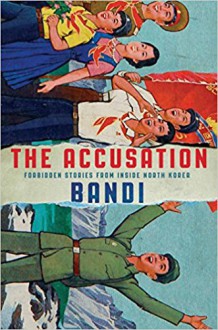
I appreciate Park telling her story and including how hard it was for her to do so. It can be something that we miss sometimes when people write memoirs that not everyone has a story that they are comfortable with everyone knowing. Sometimes we have things that we'd rather keep hidden about ourselves and Park definitely relates that feeling. She includes the shame she felt at different times and her paths to overcoming it and the times when she didn't. She gives us her story so that we can understand the plight of those who share her circumstances but that often go unheard.
I appreciate that she didn't get into the gory details. She discusses being raped and beaten (sexual violence being the most prominent trigger in this book), but she doesn't go into detail about how it happened. It's selfish of me to appreciate that but I do. This is not a comfortable book to read, but it's a necessary one and I get the impression that she didn't want to relive the details any more than I wanted to hear about them. But this didn't keep her from sharing what happened, she just laid it out there.
The other thing to appreciate about this is that when we hear the way violence happens, we sometimes miss what it is. I know it sounds ridiculous, but it's possible to describe a beating or rape without using those two words and I feel like books that do that can miss something very important. They miss that these terms are used for actions that happen in a multitude of circumstances and are not designed for use for the perpetrator. Park says that she was raped and we don't miss it underneath the coercion that was used against her. The ability to name what has happened to you and not just describe the way it happened instead is powerful. It erases any idea that it could have been something else. It makes it clear to the reader that there is no question as to what happened and that the way it happened is less important than that it happened. To me, it was pretty powerful way to approach discussing that part of her story.
I appreciate that she doesn't out others or tell their stories.
I appreciate that she admits to having mixed feelings about people in her life, even those that trafficked or helped her.
I appreciate describing the unusual relationship she has with religion between her North Korean upbringing and the missionaries she met.
I appreciate the in-depth description of what it was like to live in North Korea as a child and all the ways that she was taught to think and to be a loyal subject.
It's odd to say that I liked a book about such topics but Park made it easy to read and relate to. While it would be better to live in a world where these things didn't happen anymore, I appreciate that this book is out there to give an understanding of what it is like to go through all of this, to have to live with it and to try to get beyond it. It is essential for us to understand that this happens and how it happens in order to begin to work to eradicate it. Park knows this and even explains that this was a driving force behind her writing the book. So, yeah, I like the book. It's written well and it's important for us to read.
I wouldn't recommend it for high school or young adults because of the content, despite that she was in this age group during most of the book. I'd recommend it for anyone at or above college age, especially those who are working to understand the way the world around them works. In Order to Live is for feminists who wish to reach out internationally and for aspiring human rights activists. It is for missionaries and aid workers who will probably run into women and girls who have been trafficked.

 Log in with Facebook
Log in with Facebook 









